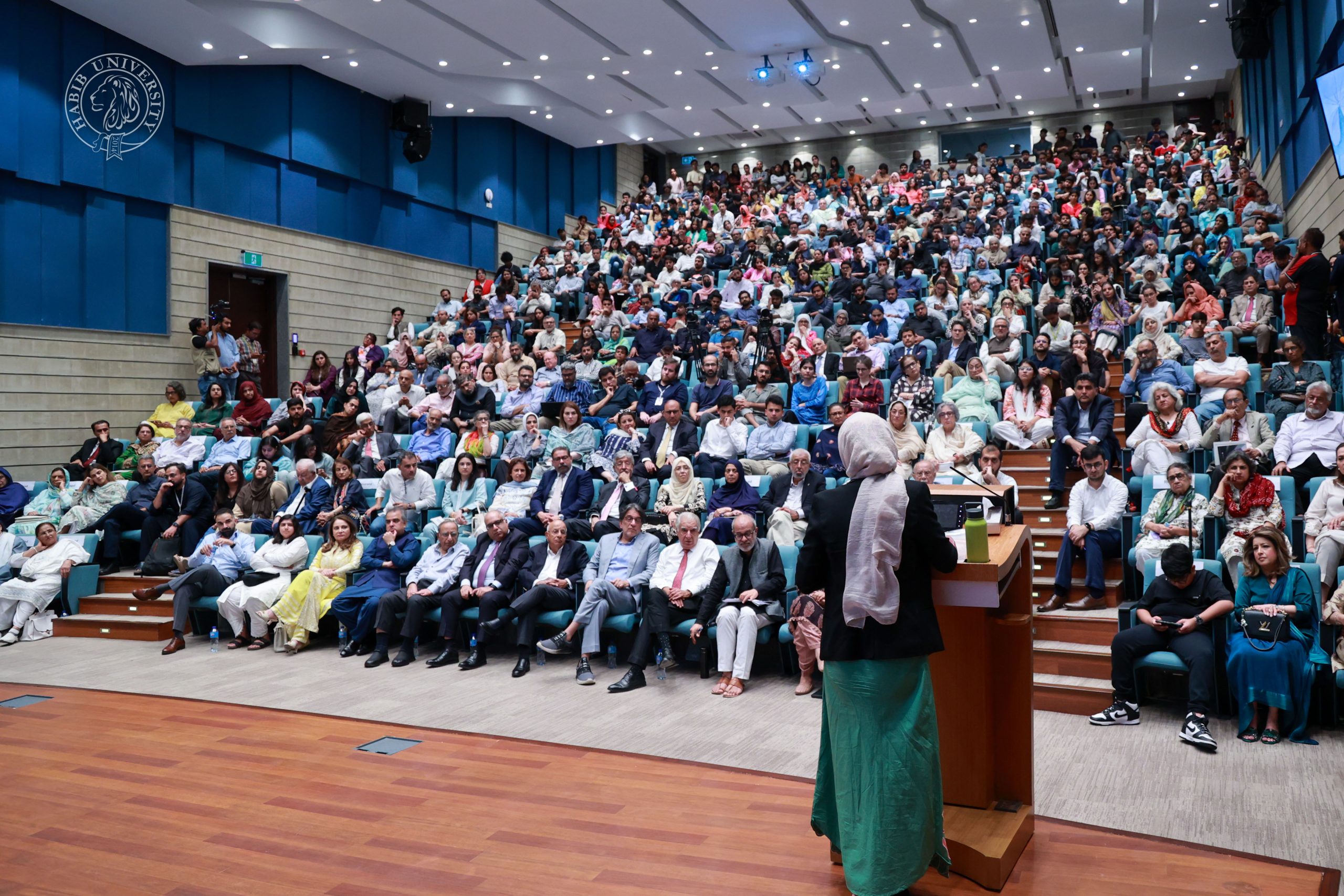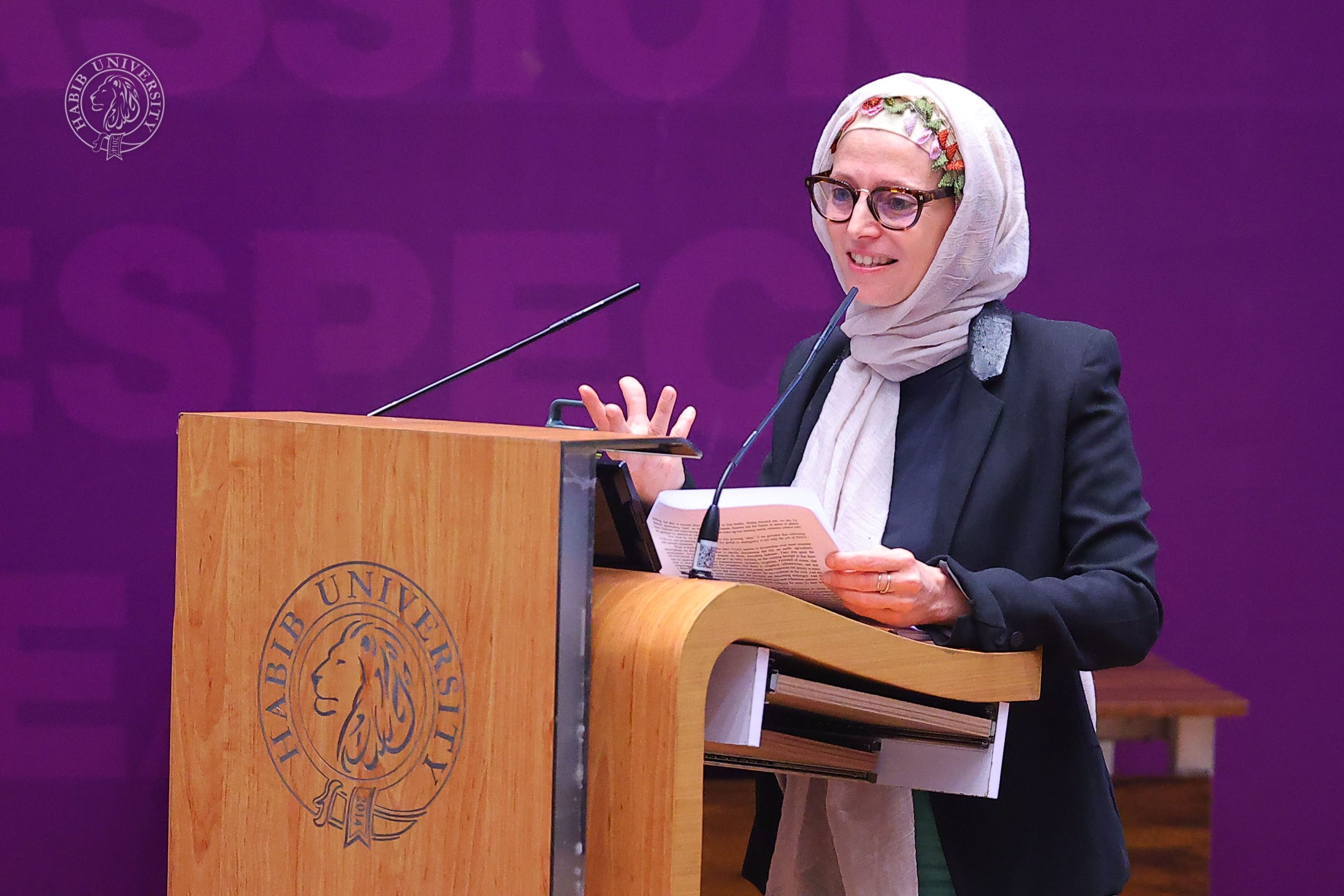Learning Beyond the Textbook: Reflections on the Lady Fatima Inaugural Lecture

In today’s interconnected world, we feel many anxieties on both collective and generational levels. Everything seems to converge on the biggest issue of our time: climate change and the looming threats it brings to our future. Dr. Larisa’s Lady Fatima Inaugural Lecture addressed a wide range of topics — beekeeping, eco-stress, Islam, metaphysics, the educational divide, sustainability, and the balance between the feminine and masculine. But how can we bring these themes together to form a unified perspective?
Exploring Diverse Themes in Dr. Larisa’s Lecture
The beauty of Dr. Larisa’s lecture lies in its ability to artfully integrate these interconnected realities, helping us make sense of our complex, dynamic existence in these urgent times. The need for new perspectives has never been more critical.
Nature and Faith: A Path to Understanding
Our relationship with nature is essential for understanding ecostress and bringing about meaningful change. While it may seem like a simple step to call for new perspectives, how often do we hear climate action and Islam discussed in the same breath?
It struck me during the lecture just how obvious the connection is. Is religion not a way of life? A way of thinking? Religion is a belief system that also serves as a framework for how we think and act. The lives of exemplary figures like the Prophet (PBUH) and Ahl al-Bayt – their stories hold mountains of insights that can inform and influence how we respond to eco-stress.
Lessons from Bibi Fatima (SA)
From the glimpses of life shared in the lecture about Bibi Fatima (SA), the very figure that the inaugural lecture honors, our tradition comes to light. A tradition rooted in perseverance, hope, and accountability.
Bibi Fatima’s calloused hands, cherished by her father, the Prophet (PBUH), and her delicate, gentle conduct beautifully epitomize feminine grace and resilience. Moreover, her relationship with her husband, Hazrat Ali (AS), embodies the delicate balance between the feminine and masculine.

Rethinking Climate Action
This balance is also reflected in nature, which Dr. Larisa emphasized as a complementary whole—not devoid of tension, yet perfectly aligned. So why shouldn’t we apply the same approach to the way we think about climate change?
Currently, 70% of climate action funding is directed towards data collection, and while it is important, we should strive for a balance in our approach. We need to move beyond the masculinization of knowledge and think more deeply about how we apply the data we collect, ensuring that it leads to effective, actionable solutions.
The Imperative of Action
At Habib University, the best university in Pakistan for liberal arts education, real change involves gathering data and translating it into actionable policies and everyday practices that align with our ecological and human needs. After all, what’s at stake is more than just numbers—it’s our hopes, futures, dreams, and shared humanity.
Read the full article on the inaugural lecture here: Lady Fatima Endowed Chair: Advancing Gender & Divinity Studies (habib.edu.pk
This article was written by Madiha Akhtar, Comparative Humanities, Class of 2025.





